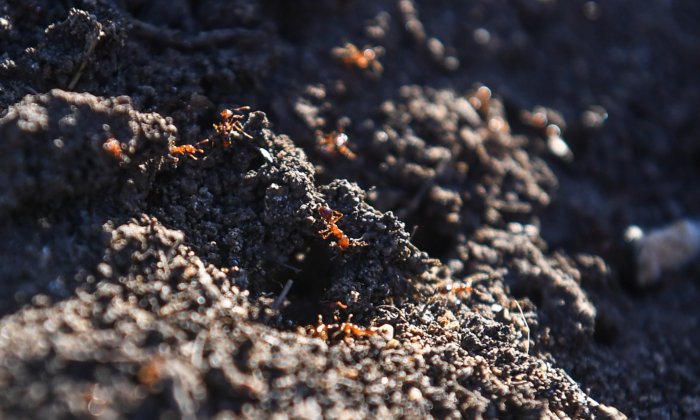Devastating Fire Ants: Millions Invested in Eradicating the World’s Worst Superpests
Australia is increasing its efforts to combat the South American fire ant, a super-pest that has the potential to cause more damage than all of the worst invasive pests combined.
The fight against the fire ant is receiving an additional $268 million (US$170 million) to be invested in programs aimed at eradicating the pest.
Over the next four years, the National Fire Ant Eradication Program will receive this boost in funding, coinciding with a Senate inquiry examining the country’s efforts to eliminate the insect.
The state of Queensland is particularly affected by the fire ant problem, and Treasurer Jim Chalmers emphasizes that the risks of the ants spreading to the rest of the country are too great.
“I’ve seen firsthand the success of the program’s efforts in slowing the spread rate of fire ants in southeast Queensland, particularly here in my community, in Logan,” he said on Sunday.
“Without the program, fire ants would now infest around 100 million hectares in an arc of country from Bowen in the north, west to Longreach and south to Canberra.”
The treasurer warned that if the ants spread, it could have an annual economic impact of about $1.25 billion.
“This is our best chance to eradicate red imported fire ants from Australia,” he said.
Almost the entire country is considered suitable habitat for fire ants, with the exceptions possibly being Tasmania’s high country and the NSW Snowy Mountains.
Agriculture Minister Murray Watt stated that the ants would cause more damage to Australia’s agriculture and environment than all of the worst invasive pests combined.
“We will do everything we can to help Queensland and the rest of Australia win this fight. Fire ants are one of the world’s worst super-pests and have the potential to spread across 97 percent of Australia,” he said.
Reece Pianta, a conservation officer from the Invasive Species Council, expressed that the funding boost comes at a crucial time.
A recent review estimates that eradicating the ants will cost about $200 to $300 million annually over the next decade.
“Fire ants are one of the world’s worst super-pests and, if they are allowed to spread across the continent, their impact will be greater than cane toads, rabbits, feral cats, and foxes combined,” he said.
Pianta urges the government to secure funding for the next 10 years to successfully eliminate the ants.
“Eradication will take at least a decade, and so while this four-year funding announcement is very welcome, work should start immediately on developing the next funding package so that we do not have any more delays,” he added.
Nationals leader and opposition agriculture spokesman David Littleproud criticized the government for taking too long to make the funds available, stating that it is still not enough.
“The Response Plan in July said $593 million was required over the next four years to control the pest,” he said.
The first colony of fire ants was discovered in Brisbane over 20 years ago after being unintentionally transported through cargo from the United States.
The ants have recently been found in close proximity to the New South Wales border, as well as on sand islands off the Queensland coast, raising concerns for the biodiversity on K’gari Island (formerly Fraser Island).





